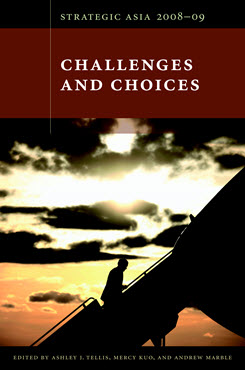Overview
Preserving Hegemony—The Strategic Tasks Facing the United States
This chapter explores the means through which the U.S. can maintain its position as global leader amid a changing international landscape, particularly in Asia.
EXECUTIVE SUMMARY
This chapter explores the means through which the U.S. can maintain its position as global leader amid a changing international landscape, particularly in Asia.
MAIN ARGUMENT
Although the current international system is characterized by the continued dominance of the U.S., in the distant horizon there are new competitors, such as China, poised to lay the foundations for gradually eclipsing U.S. primacy over time. The principal task facing the next administration is thus to consolidate U.S. hegemony by redefining the nation’s global role, renewing its strength, and recovering its legitimacy. Successful resolution of these challenges would empower Washington in its dealings with both Asia and the rest of the world.
POLICY IMPLICATIONS
- U.S. efforts in three areas will reaffirm the country’s role as global leader: supporting a durable framework for international trade, maintaining unqualified military supremacy, and ensuring the delivery of certain public goods, such as peace and security, freedom of navigation, and a clean environment.
- The renewal of traditional U.S. economic might requires policies that favor growth and innovation, increased capital and labor pools, and sustained pursuit of total factor productivity.
- Legitimacy is an important facet of U.S. power that has eroded over the last eight years. The U.S. can secure legitimacy for future political acts by shaping world opinion through a combination of decisiveness, cultivation of key allied support, and attentiveness to the views of others.
Strategic Asia
The Strategic Asia annual edited volume incorporates assessments of economic, political, and military trends and focuses on the strategies that drive policy in the region. Learn more about Strategic Asia.


